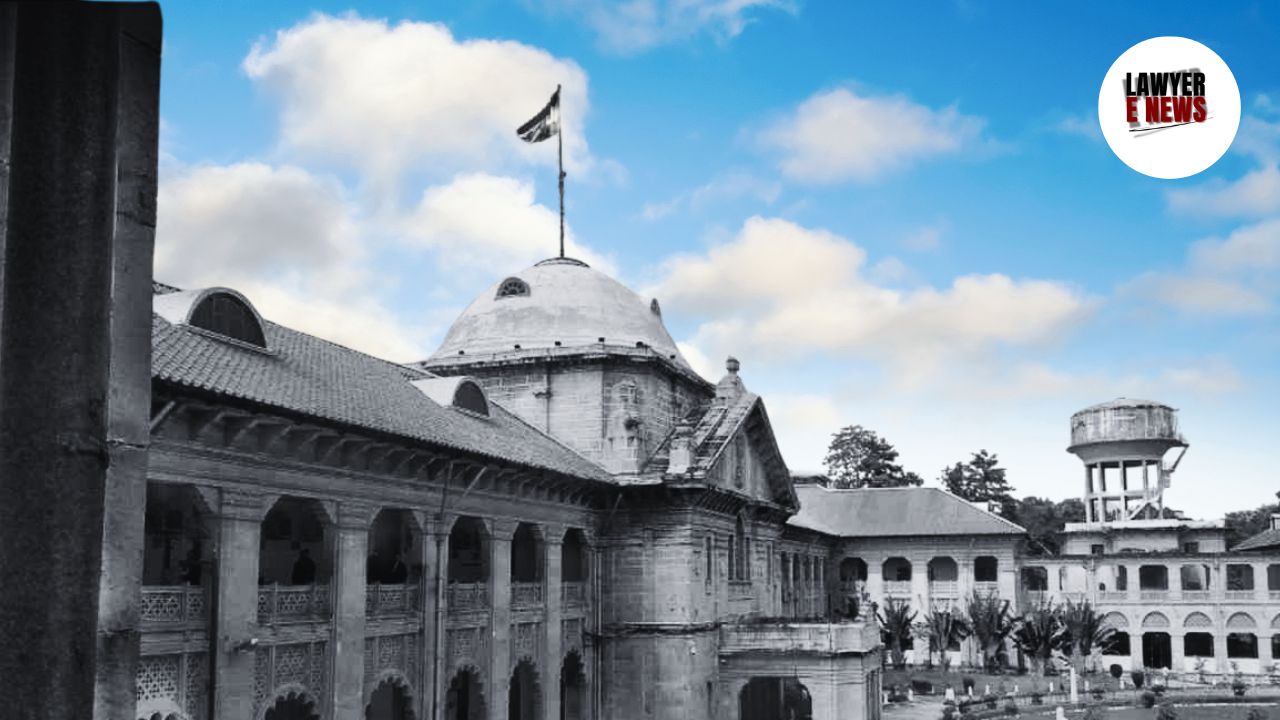-
by sayum
14 February 2026 2:22 PM



"Grabbing the land of a rustic villager and committing trespass over it is an act that cannot be approved, particularly when it lacks any statutory or legal sanction." – Hon'ble Justice Kshitij Shailendra, Allahabad High Court
In a landmark judgment delivered by the Allahabad High Court on September 10, 2024, Justice Kshitij Shailendra ruled against the Catholic Diocese of Gorakhpur and the State of Uttar Pradesh for illegally occupying land belonging to Bhola, the original plaintiff, in Mauza Jangal Salikram, Gorakhpur. The court found that the defendants, in collusion, had taken possession of the land without any lawful basis, terming the act as "property grabbing."
The case, originally filed by Bhola in 2011, concerned the ownership and possession of Plot No. 26, measuring 93 decimals. Bhola, claiming to be the lawful Bhumidhar, alleged that the Catholic Diocese, under the guise of constructing a hospital, began enclosing the land and building a boundary wall without his consent. A lease deed executed by the State of Uttar Pradesh in favor of the Diocese was also called into question, leading to the initiation of legal proceedings. While the trial court dismissed Bhola's suit, the appellate court reversed this decision, prompting the Diocese to file a second appeal.
The primary legal questions before the court were:
Whether Bhola had legally surrendered his land, Plot No. 26, in exchange for land from Plot No. 197, which was declared surplus under the Urban Land (Ceiling and Regulation) Act, 1976.
Whether the lease deed executed in favor of the Catholic Diocese was valid and if the suit was barred by estoppel or acquiescence, given the construction on the land.
Whether the appellate court had the jurisdiction to invalidate the State’s proceedings under the Urban Land (Ceiling and Regulation) Act.
The High Court upheld the appellate court’s ruling, stating that the land in question was never legally vested in the State, nor was Bhola’s share in Plot No. 197 ever declared surplus. The court also found that the Diocese had relied on a dubious lease deed that was executed years after the original agreement, noting irregularities in the registration process. It emphasized that mere affidavits or applications filed by the plaintiff could not confer ownership to the State or Diocese without proper legal procedures.
Admission by Plaintiff Rejected: The court scrutinized the plaintiff's alleged surrender of the land and concluded that Bhola never voluntarily relinquished his rights to Plot No. 26. Any documents purported to support this claim were either coerced or obtained under duress, the court suggested, particularly emphasizing the plaintiff’s denial of such a transaction in his testimony.
Invalid Lease Deed: The lease deed, executed by the State in favor of the Diocese, was deemed invalid as it lacked statutory authority. The court found that Plot No. 26 was never subject to the ceiling proceedings, and no lawful exchange between Plot No. 197 and Plot No. 26 had occurred.
State’s Involvement and Estoppel: The court rejected the defense of estoppel, holding that the Diocese’s construction on the land, even if significant investments were made, did not legitimize their claim. The absence of any lawful exchange or sale disqualified their argument of estoppel.
Justice Shailendra highlighted that the case involved a clear abuse of power by the State in collaboration with the Diocese. The court sharply criticized the use of public authority to deprive a landowner of his property, stating that the actions of the State and the Diocese amounted to "trespass."
Moreover, the court lamented the long-standing injustice, where the plaintiff’s legal heirs were deprived of their rightful property for over three decades, underscoring that justice must prevail even in cases where significant time has elapsed.
The court dismissed the Diocese’s second appeal, imposing a heavy cost of ₹10 lakhs as compensation for the prolonged trespass and illegal occupation. The Diocese and the State were directed to bear the cost equally, with the sum to be paid to Bhola’s legal heirs within three months. The court also ordered the removal of all illegal constructions on the land and upheld the cancellation of the disputed lease deed.
Date of Judgment: September 10, 2024
The Catholic Diocese of Gorakhpur vs. Bhola (Deceased) and Others
